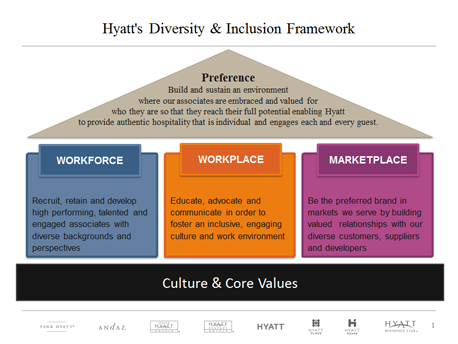Diversity and inclusion training is an essential part of creating a welcoming and inclusive environment in workplaces and society as a whole. This training aims to educate individuals about the importance of embracing differences and fostering a culture where everyone feels valued and respected.
Why Diversity and Inclusion Training Matters
Diversity and inclusion training plays a crucial role in eliminating biases, stereotypes, and discrimination. It helps individuals recognize their unconscious biases and challenges them to confront their preconceived notions about various groups of people.
Through this training, organizations can build a more inclusive and equitable workplace, where individuals from diverse backgrounds have equal opportunities for growth and success. It fosters creativity, innovation, and better decision-making by encouraging diverse perspectives and experiences.
The Benefits of Diversity and Inclusion Training
1. Increased Employee Engagement: Employees feel more engaged when they can bring their authentic selves to work and feel valued for their unique contributions. Diversity and inclusion training help create an inclusive culture that promotes engagement and productivity.
2. Enhanced Collaboration and Teamwork: When individuals from different backgrounds work together, they bring diverse skills, ideas, and experiences to the table. This fosters collaboration, creativity, and innovation, leading to better problem-solving and overall team performance.
3. Improved Customer Relations and Satisfaction: A diverse and inclusive workforce can better understand and cater to the needs of diverse customer bases. Companies that prioritize diversity and inclusion tend to have better customer relations, higher customer satisfaction, and increased customer loyalty.
4. Attracting and Retaining Top Talent: In today’s competitive job market, prospective employees seek organizations that prioritize diversity and inclusion. By offering diversity and inclusion training, companies can attract and retain top talent, creating a more diverse and high-performing workforce.
Key Components of Diversity and Inclusion Training
The components of diversity and inclusion training may vary based on the organization’s specific needs and goals. However, some common elements include:
1. Understanding Bias and Stereotypes: This module explores the concept of biases, both conscious and unconscious, and educates participants about common stereotypes that exist. It aims to create awareness and encourage individuals to challenge their biases.
2. Developing Cultural Competence: This component focuses on enhancing participants’ understanding and appreciation of different cultures, backgrounds, and perspectives. It equips individuals with the knowledge and skills necessary to effectively interact with individuals from diverse backgrounds.
3. Inclusive Communication: Effective communication is vital for fostering an inclusive environment. This component emphasizes active listening, empathy, and respectful communication practices that encourage open dialogue and collaboration among individuals.
4. Addressing Unconscious Bias: Unconscious biases are deeply ingrained attitudes and stereotypes that affect our decisions and interactions without our awareness. This module helps individuals identify and challenge these biases, leading to more inclusive and equitable decision-making processes.
Measuring the Impact of Diversity and Inclusion Training
Evaluating the impact of diversity and inclusion training is essential to gauge its effectiveness and make necessary improvements. Some metrics to consider include:
Employee satisfaction and engagement surveys
Retention rates and turnover analysis
Employee performance evaluations
Feedback from diverse groups within the organization
Customer satisfaction and loyalty metrics
Conclusion
Diversity and inclusion training is a powerful tool in creating an inclusive workplace and society. By providing individuals with the knowledge, skills, and awareness necessary to challenge biases and embrace diversity, organizations can foster a culture where everyone feels valued, respected, and empowered.

